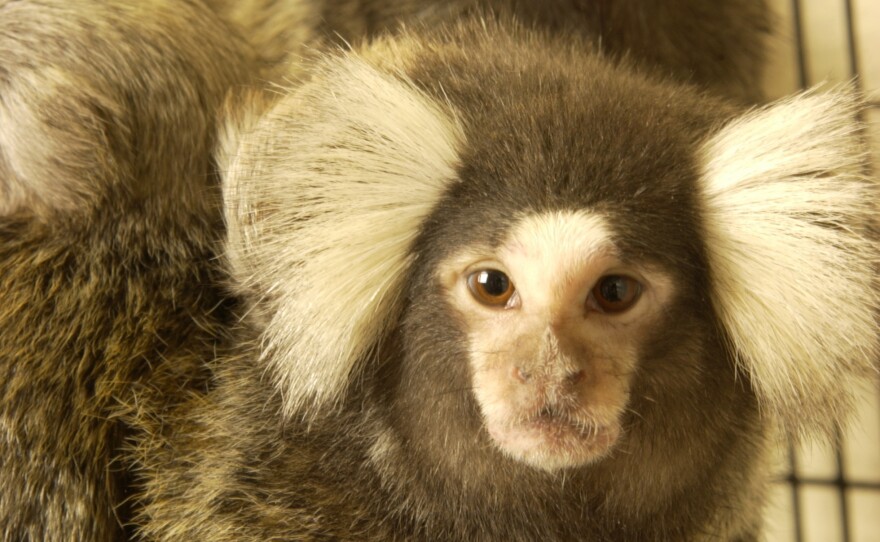San Antonio scientists are part of a push to develop laboratory animal models to study the Zika virus. Baboons and monkeys may be key to unlocking new treatments and vaccines.
Marmosets are a New World monkey that lives in Brazil, where it’s been infected with Zika in the wild. Now, scientists at Texas Biomedical Research Institute are using the small primate, about the size of a guinea pig, to test possible vaccines and treatments for Zika.

"When you infect marmoset with a human virus, the disease looks very much like what you see in humans," explained Jean L. Patterson, Ph.D., scientist in the virology department.
Patterson's early tests in male marmosets show the virus clears the blood quickly, but lingers in urine, saliva and semen, just like it does in humans. With a short gestation period of five months and a tendency to have twins, marmosets are good virus models. The animals have already been used to study diseases like Ebola and Lassa Fever.
Those earlier studies put Texas Biomed in a good position to tackle Zika. "We’re in a perfect place to be the ones to help develop a model in a non-human primate for Zika," Patterson stated.

More than 1,200 baboons live in a unique colony at the Southwest National Primate Research Center at Texas Biomed. Humans share more than 90 percent of genes with baboons.
Scientists at the Institute have already used pregnant baboons to study everything from endometriosis to the impact of obesity of the developing baby baboon. They use sophisticated tests like blood screens and ultrasounds to monitor the unborn primates. And they’ve been doing it for 20 years.
Scientist Luis Giavedoni, Ph.D., says baboons could be important in testing Zika vaccines for pregnant women, ensuring they don’t impact the fetus. "There are a lot of techniques that have been developed," he explained. "I think we can bank on that amount of data and experience to obtain meaningful data with the Zika studies in that species."

A lack of formal funding for Texas Biomed’s Zika work is a source of frustration for scientists like Patterson.
"None of us has funding. I mean, it doesn’t exist. So right now we’re doing whatever we can. I think it’s clearly a health crisis," she added.
Texas Biomed is doing everything it can to advance its Zika efforts, including sending out a letter to individual donors, expressing the need for money now.
The letter says, "We are asking you to become a Zika Project Sponsor. Our research teams are dedicated to studying Zika and beating Zika. But we cannot win this battle without your help.”
In labs around the country, Zika research goes on as Congress still debates a stalled bill. Texas Biomed has applied for a grant from the National Institutes of Health, but the federal grant process, even on an emergency basis, takes months.












